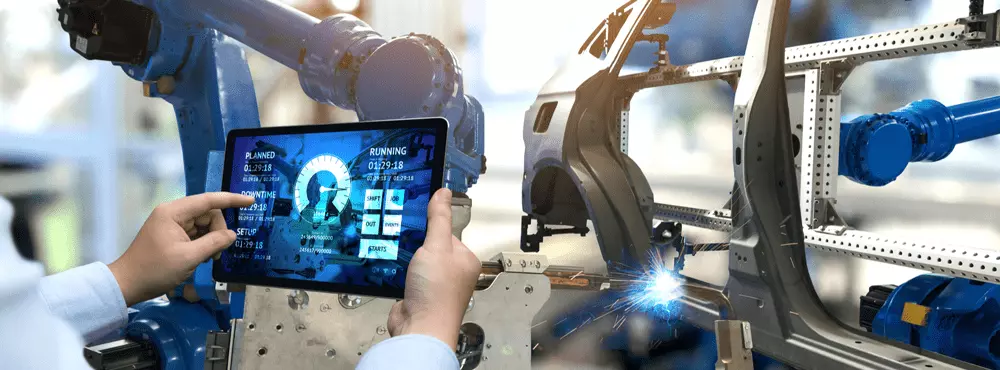
How IoT Technology is Changing Our World
By Thayer Tate
Internet of Things (IoT) technology is exploding in popularity as it takes on new roles in many different industries. It may seem like a complex idea, but the term is used to describe the growing number of devices that are connected online. IoT devices include an assortment of personal “smart” devices such as smart speakers, smart TVs, and smartwatches. They also include industrial and commercial devices such as smart meters, security systems, traffic monitoring systems, and many others.
The number of devices or things that are connected has grown exponentially over time. It is estimated that there are over 20 billion IoT devices connected to the Internet. By 2025, that number is projected to more than triple, with an estimated 75 billion devices connected to the Internet.
How is the IoT Changing Our World?
The explosion of raw computing power and the mainstreaming of technologies like artificial intelligence, big data, and predictive analytics are the foundation for new applications that are impacting businesses.
This convergence of technologies into the IoT has a broad-reaching impact on businesses and our personal lives. It is changing the way we interact with previously offline technologies, and it is increasing the capabilities of ordinary devices. Essentially, we can now do more with less.
With the IoT, the possibilities are endless. Any previously offline or “dumb” device can be made smart, by connecting it to the Internet. The way that we perform any action in our daily routines at home or work has the ability to be transformed through the IoT.
Let’s take a deeper look at some of the devices that are changing the way we do things.
Monitoring Devices
The PillCam is an ingestible high-quality imaging device that can be swallowed by a patient to capture information about the digestive system. This has the potential to make colonoscopies obsolete and give doctors new ways to diagnose critical illnesses.
The Apple Watch Series 4 can take an electrocardiogram (ECG) measurement of your heart’s electrical pulses. This can give you a general snapshot of your overall health and send that information to an app on your phone — you then can share that history with your doctor. In addition, the Apple Watch has a fall detection feature that uses custom algorithms, a built-in gyroscope and accelerometer to determine when a hard fall occurs. Using those same sensors, it can tell if you have been immobile for 60 seconds and automatically call emergency services.
Through the use of RFID tags, antennas and readers, inventory management and control have become less expensive, and offer a more accurate accounting of the location, status, and movements of a company’s inventory. This data is easily integrated into enterprise resource planning software, and other inventory management systems to provide a real-time set of actionable data.
More Data for Smarter Decisions
We live in a world that is overflowing with data. Learning how to harness that information can lead to tremendous opportunity for all involved, and that’s where monitoring devices fit in. These devices lead to the ability for businesses and consumers alike to make better, more informed decisions.
An IoT coffee maker that is controlled by a mobile phone app can track how often a consumer brews coffee, how much coffee is brewed, and how often they must restock the coffee. This information can be used by the consumer to add coffee to their shopping list automatically. It could also be used by the manufacturer to offer coupons to the consumer when they are ready to restock their coffee beans or filters.
Wearables and other IoT medical devices allow diagnostic data to be transmitted to doctors and other health care professionals in real-time across the world. These devices play an instrumental role in managing a patient’s healthcare or in monitoring public health situations. Using a hybrid combination of analytics and experienced medical professionals, the patient can receive life-saving advice.
Better Control for Time and Energy Saving
Controlling our IoT devices with mobile phones, smart speakers, and other connected devices gives us a new level of control over analog devices. For example, you can use your Alexa to set the temperature in your home. You can use a smartphone app to turn your car on remotely to heat it in the winter. Amazon Key can unlock your door, and allow delivery not to your doorstep, but inside your home all while a camera monitors the activity.
Commercial buildings are using more automation than ever to control lighting and HVAC to save money and optimize comfort. IoT devices monitor power generation equipment for retail locations and large utilities. Cloud-based services receive this information regularly and can adjust the output according to demand.
Privacy and Security
While the IoT holds opportunity, it also brings some concerns to address. First, every connected device will be collecting a considerable amount of data. As data storage becomes more affordable, indexing the data effectively for analytics will become a greater need.
Second, the data needs to be stored securely, to prevent hacking attacks on company servers and identity thefts of the individual. High profile data breaches have become all too common. These breaches leave customers and companies exposed. The good news is that with proper planning and attention on consumer security, the risks can be managed.
Should Your Company Enter the IoT World?
Current trends will continue as more IoT devices are incorporated into our daily lives, both at home and work. It’s time to think creatively about how your company can benefit from creating an IoT offering, using IoT to make your business more efficient. With reliable, professional guidance, you can develop an IoT product that meets company goals and is secure.
Interested to learn more about emerging software solutions? Download our FREE e-book!
Thayer Tate
Chief Technology Officer
Thayer’s expertise expanded as he obtained his Project Management Professional (PMP) certification and joined SOLTECH, an Atlanta-based technology firm specializing in custom software development, Technology Consulting and IT staffing. During his tenure at SOLTECH, Thayer honed his skills by managing the design and development of numerous projects, eventually assuming executive responsibility for leading the technical direction of SOLTECH’s software solutions.
As a thought leader and industry expert, Thayer writes articles on technology strategy and planning, software development, project implementation, and technology integration. Thayer’s aim is to empower readers with practical insights and actionable advice based on his extensive experience.


